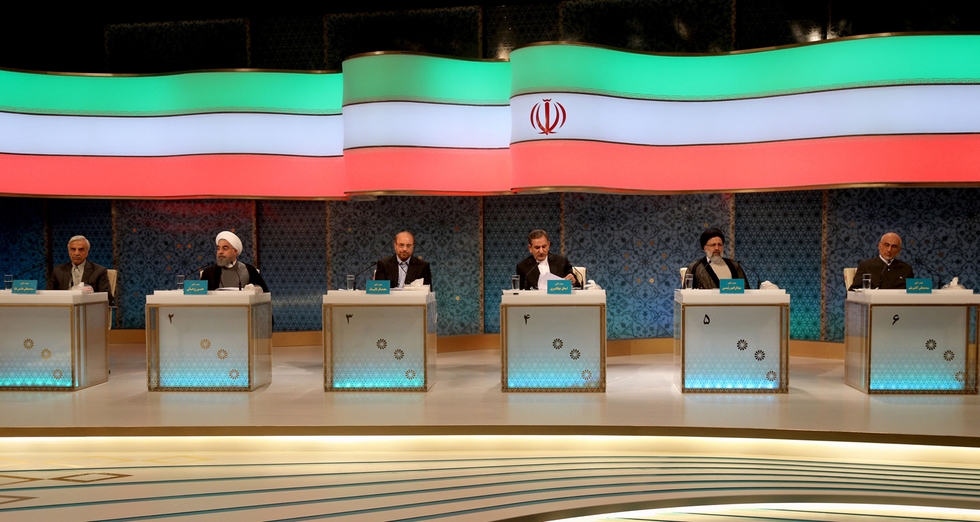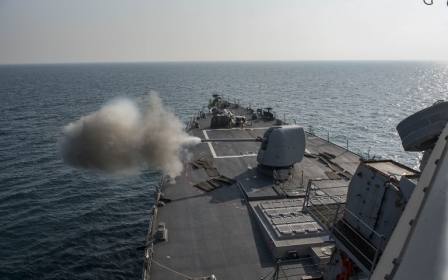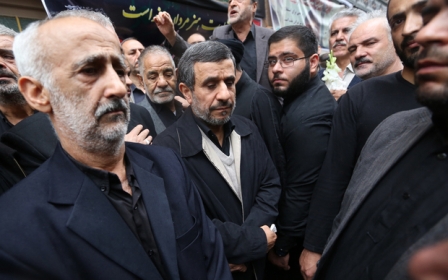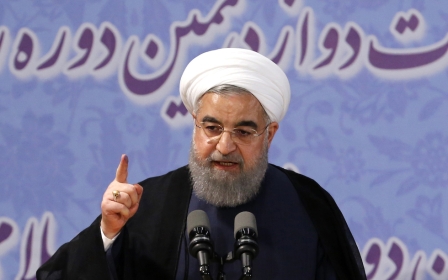Iran presidential candidates square off in first TV debate

The six candidates standing in Iran's presidential election squared off in their first live television debate on Friday, with moderate President Hassan Rouhani coming under fire from a key rival.
Televised debates, while a relatively new feature of Iranian presidential elections, are believed to have influenced voting results in 2009 and 2013.
Ahead of the 19 May poll, the interior ministry announced a ban on live television debates, triggering an outcry that prompted a reversal of its decision. Three live debates are now expected.
Rouhani, who is hoping for a second term in office, conservative rivals Ebrahim Raisi and Tehran mayor Mohammad Bagher Ghalibaf all rejected the ban.
Iran's presidential election was also hit with controversy when former Iranian leader Mahmoud Ahmadinejad, who ruled Iran from 2005 to 2013, was barred from running.
Supreme Leader Ali Khamenei had advised Ahmadinejad not to run, and his attempt to become a candidate was widely seen as a public snub to the ayatollah, which is almost unheard of in the Islamic Republic.
On Friday, during the first live debate, Ghalibaf hammered Rouhani and his confidante and first vice-president, Eshaq Jahangiri, with both sides trading accusations of "lies" and making "insincere" comments.
Ghalibaf berated Rouhani for failing to make good on a promise "to create four million jobs," saying unemployment was Iran's "biggest problem".
Rouhani riposted by saying: "I never promised to create four million jobs. That's a lie."
Unemployment, which stands at 12.4 percent, and the lack of housing and government aid for the underprivileged were the issues that dominated Friday's debate.
Ghalibaf also accused Rouhani and his government of "bad management" and of "repeatedly saying that the government does not have the means" to solve Iran's problems.
He also took a poke at Jahangiri, whose candidacy was a late, surprise entry, saying the vice-president threw his hat in the ring only to back up Rouhani and help him in the debates.
According to several reformists, Jahangiri is expected to pull out of the race after the three live television debates and support Rouhani.
Jahangiri dismissed the attacks and accused Ghalibaf of running the capital "with the mentality of a military man".
A war veteran, Ghalibaf is a former Revolutionary Guards commander and police chief. This is his third run for the presidency.
The other three candidates - Raisi, a hardline judge and close ally of Khamenei, conservative Mostafa Mirsalim and reformist Mostafa Hashemitaba - kept a low profile in the debate.
New MEE newsletter: Jerusalem Dispatch
Sign up to get the latest insights and analysis on Israel-Palestine, alongside Turkey Unpacked and other MEE newsletters
Middle East Eye delivers independent and unrivalled coverage and analysis of the Middle East, North Africa and beyond. To learn more about republishing this content and the associated fees, please fill out this form. More about MEE can be found here.




